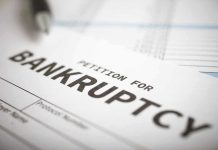
Improve Your Credit Score FAST With These 7 Proven Tricks
(StraightNews.org) – Virtually everyone needs credit at some point in their lives. Whether or not you qualify for financial assistance from banks and other institutions depends primarily on your credit score. Due to this, a bad credit score can hold you back from being able to do things like buy a car or house or even start your dream business.
How You Can Repair Your Credit Score
Your credit score depends heavily on how well you manage your finances. If you are struggling with a low credit score, it may seem challenging to make changes. Don’t despair; you can take steps to repair your credit score. Keep reading to learn more.
1. Pay Your Bills on Time
Late payments on your bills will show up on your credit checks. These payments can significantly impact your credit score. Your bill payment history makes up 35% of your credit score, so it is essential to pay bills on time.
Living within your means means avoiding bills you cannot afford. It is also recommended to use auto-pay for recurring bills that are easy to forget.
2. Pay Down Your Debts
Outstanding debts are another primary reason that people have poor credit scores. They can reduce your overall credit score and increase your credit utilization ratio, even if you are not actively using credit.
Developing a payment plan such as debt consolidation and following up on it can get strikes removed. Don’t be surprised if your credit score drops when you start paying down your debt. Once you are making consistent payments, your score will rise.
3. Avoid Taking Credit Unless You Absolutely Need It
Lenders run a hard credit check when determining whether you can receive credit. A hard credit check reduces your credit by as much as 5 points and lowers your average account age, lowering your credit score. That’s why it is better to avoid taking out unnecessary credit, especially if you already have a low credit score.
4. Monitor Your Credit Score & Report
Like most Americans, you may not even know your credit score. Knowing your credit score and reading your credit report can help you develop a plan to repair your credit.
A hard credit check can cost you up to five points, but requesting your credit report yourself (a soft credit check) will not cost you anything. Remember to request your credit report from all three credit bureaus (Experian, Transunion, and Equifax) to ensure you aren’t missing anything.
5. Limit Your Credit Utilization Ratio
A credit utilization ratio is the difference between your credit limit and the current balance on all of your credit cards. Your credit ratio should never surpass 30%. Having a high ratio shows that you depend highly on credit for your daily financial obligations.
6. Dispute and Fix Errors
Credit bureaus can make mistakes. According to a Federal Trade Commission report, as many as 25% of people listed with the bureaus have credit report errors. Checking every entry on your report thoroughly can reduce the number of errors on your report and allow you to fix them quickly. You can either dispute the mistakes by yourself or utilize a credit repair services provider.
7. Keep Your Old Credit Cards Open
Closing all your credit cards will not help you repair your credit. Active credit cards help contribute to your credit history, making up roughly 15% of your overall credit score. Keeping your old credit cards open help improve your credit score, so it is worth keeping them unless the cost of doing so is high.
Repairing bad credit involves improving your financial management. You can do it yourself or get a credit repair company to help you. It all comes down to your willingness to follow these recommendations.
Copyright 2022, StraightNews.org













